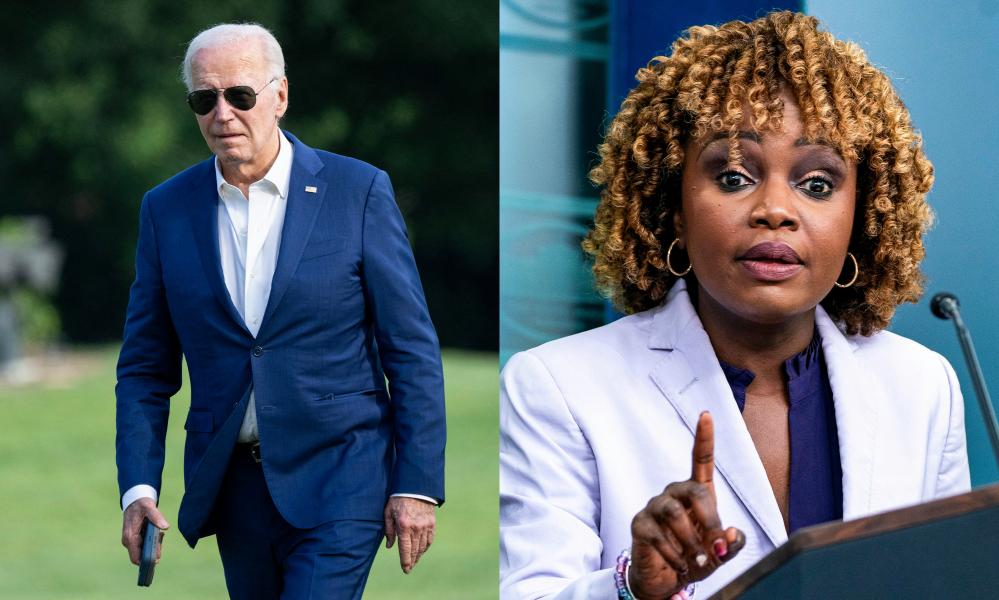The White House clarified on Monday that Joe Biden has not seen a neurologist outside of his annual physicals, following a heated exchange between the president’s press secretary and journalists seeking an explanation for why a Parkinson’s disease specialist visited the White House eight times in as many months.
In an evening letter the White House physician, Kevin O’Connor, said the specialist, Kevin Cannard, has been a neurology consultant to the White House medical unit since 2012. He said Cannard had visited multiple times a year since then, and that the neurologist was chosen for his breadth of experience and expertise.
“Seeing patients at the White House is something that Dr Cannard has been doing for a dozen years,” O’Connor wrote. “Dr Cannard was chosen for this responsibility not because he is a movement disorder specialist, but because he is a highly trained and highly regarded neurologist here at Walter Reed and across the Military Health System, with a very wide expertise which makes him flexible to see a variety of patients and problems.”
He added that Cannard was the neurologist who had examined Biden for his three annual physicals since becoming president.
Biden’s last medical examination in February had not shown “any cerebellar or other central neurological disorder, such as stroke, multiple sclerosis, Parkinson’s or ascending lateral sclerosis, nor are there any signs of cervical myelopathy”, O’Connor wrote.
The letter, which O’Connor said he was releasing with the permission of both Biden and Cannard, followed intense speculation about the president’s cognitive powers following last month’s stumbling performance in a debate with Donald Trump in Atlanta, in which he repeatedly appeared confused and lost his train of thought.
It was released after Karine Jean-Pierre, the president’s press secretary, sparred with reporters in the White House briefing room in an exchange during which she asked them for “respect” and declined to confirm Cannard’s name, even though it had already been reported in multiple media outlets.
“There are thousands of military personnel that come to the White House and they are under the care of the medical unit,” she said.
“The president has seen a neurologist three times,” she added, and continued that there were: “no findings which would be consistent with any cerebellar or other central neurological disorders such as stroke, multiple sclerosis, Parkinson’s, or ascending lateral sclerosis”.
She said Biden was not being treated or taking medication for Parkinson’s disease.
O’Connor’s letter may not be enough to quell the suspicions over Biden’s health and fitness to serve, amid revelations that he is a former business associate and longtime friend of the president’s family. Politico reported that he introduced Biden’s brother, Jim Biden, to a military-focused medical team in 2017, at a time when he was pursuing a business venture aimed at securing veterans’ affairs contracts, and the president’s sister-in-law, Sara Biden, has also described O’Connor as a friend who has dispensed medical advice to the family.
Jacob Appel, a professor at the Icahn School of Medicine in New York, told Politico that presidential doctors could not necessarily be relied on to disclose the truth about their distinguished patients.
“Presidents’ doctors have deceived the public going back to the early 19th century,” said Appel, who has studied the medical dilemmas of multiple doctors acting for US presidents. “There are plenty of ways of saying something that are factually accurate that don’t convey the full sense of what’s going on.”
Speculation about matters relating to Biden that might not previously have been scrutinized before his poor debate showing has grown, such as the recent disclosure that his staff prepares memos, complete with large print and photos, mapping out his path to the podium for public engagements, though the campaign emphasised that such materials are prepared for all presidents.


